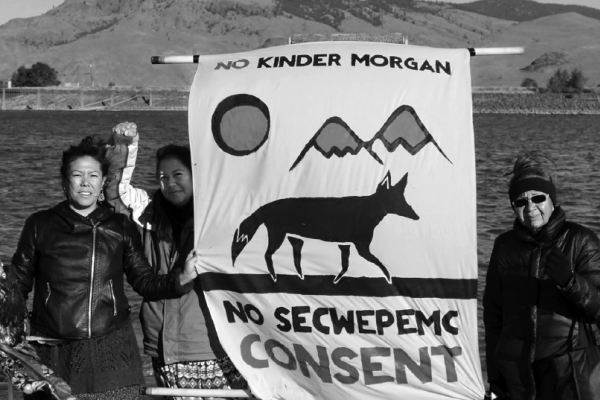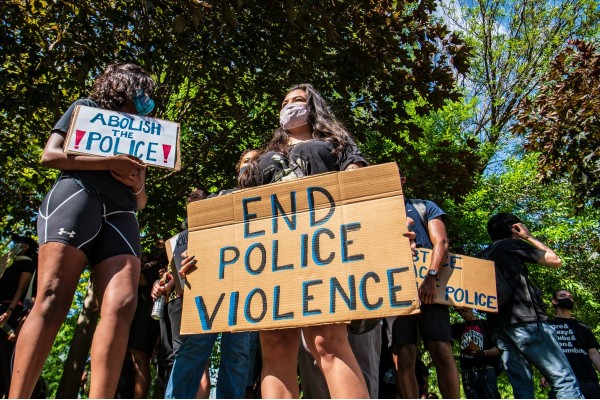‘Wisdom Engaged’ ties decolonization to shared health and well-being
This book gives compelling evidence that Indigenous health is fundamentally tied to land, language, and culture
An invaluable manual for decolonisation, Whose Land Is It Anyway?, includes a variety of perspectives from Indigenous academics and activists. The book, released in 2017, mentions “rights” and “land” 38 and 165 times, respectively. By contrast, “health” and “well-being” are mentioned only 11 and three times each.
The book under review here, Wisdom Engaged: Traditional Knowledge for Northern Community Well-Being, shows powerfully that health and well-being must also be at the centre of decolonisation and reconciliation efforts.
The book gives compelling evidence that Indigenous health is fundamentally tied to land, language, and culture. “Being well” is the end purpose of community empowerment, emplacement, and self-determination.
Based on a 2015 workshop, Wisdom Engaged gathers the diverse voices of scholars, community activists, Elders, Knowledge Keepers, and healers from Alberta, B.C., the Northwest Territories, Yukon, and Alaska. It offers sled-loads of insight into the state of northern Indigenous health and well-being.
The book’s editor, Leslie Main Johnson, tells us that the “legacy of the colonial encounter […] forms the background of our work.” In large part, being well means recovery from what contributing author and medical anthropologist Thea Luig calls the “intergenerational trauma” of persistent colonial violence.
Wisdom Engaged has two parts: the first cast in more formal, scholarly language, and the second a bundle of lightly edited oral presentations. Johnson ventured in the latter half “to honour the original speech patterns of the Elders.” This is about as close as one gets to oral tradition on the printed page.
The book begins with early encounters. Many medical missionaries used the ravages of unfamiliar European diseases to coerce locals into the healing arms of Christ. In the early 1900s, one pious doctor in Hazelton, B.C., had the police remove a former patient from a healing ceremony and return her to his hospital – “a fairly unequivocal message of competition and colonial power in the business of healing,” observes Johnson.
Back in the present, Robert Beaulieu, a Chipewyan Dene spiritual healer, tells of his frustration at an Ontario doctor who, in May 2014, said “anybody who believed in traditional medicine or Indian medicine should be locked up.”
At issue was a young Indigenous woman who, with parental and Council support, had chosen to replace chemotherapy with traditional medicine. Hospital authorities referred her case to Children’s Aid, raising deep-seated fears that she would be removed from her family.
Debate quickly polarised, but Beaulieu doesn’t pick sides. Instead, he urges: “our blood’s red – but we don’t work with each other. […] We’ve got to work together.” An editorial in the Canadian Medical Association Journal echoes Beaulieu’s sentiment.
That Indigenous and Western medicine can co-exist was already recognised in the late 1800s. During that time, writes historian Walter Vanast, the Kukpugmiut Inuit society on the Eastern Mackenzie Delta saw “no inherent conflict between traditional and biomedical systems.”
The idea of complementarity runs throughout Wisdom Engaged. Gwich’in herbalist and Elder Mabel English says: “If we could only work with our buddies, you know, the European people, Western medicine, we could help lots of people.” She then shares her deep knowledge of natural medicines, including rat root and red willow.
Celina Harpe-Cooper, a Fort McKay Elder and self-described “bush woman” who can “sew anything,” says: “We are just like scientists in our own way.” She’s part of the Fort McKay Berry Group, who collaborate with ethnobotanist Janelle Marie Baker to monitor the damaged health of medicinal berries in Alberta’s oil sands region. Indigenous well-being entails local food security and sovereignty.
Respect for land is likewise tied to respect for food and people. “Do not laugh at food,” counsels Haida and Tlingit Elder and weaver Della M. Cheney. In turn, Gitksan Elder and High Chief Art Mathews cautions that “kids are watching us. So be careful what you do, what you say even if it’s just for fun.”
The National Aboriginal Youth Suicide Prevention Strategy lists the “breakdown of family structures” and “dislocation from the land” as key factors in youth suicide. Wisdom Engaged puts strong emphasis on the land-based teaching of traditional knowledge to Indigenous youth.
Gwich’in Elder Mary Teya says: “I don’t want to take the knowledge with me. I want to leave it behind.” Elder Della tells a long, rich story about a family boat trip off the Alaskan coast to harvest seaweed and gumboot chitons. Children form the centre. Uncle is their teacher.
Uncle calls to a seal, “Aaawoouf.” The seal nears their boat. “Uncle makes a different sound and the seal goes ‘huuh’ and he takes a deep breath and comes out of the water, almost half way out.”
“So we’re all going, ‘Whoa.’ We love to eat seal.” The kids spend the rest of the day happily practicing their seal calls. “So we hear that along the way, all the way there and back.”
Given the strong emphasis Wisdom Engaged places on Indigenous youth, it is striking that so few young voices appear in its pages. A recent youth-made film, Journey Towards Reconciliation, makes clear that Indigenous youth can contribute much when given the opportunity.
But opportunity is precisely the problem. Indigenous activists like Cindy Blackstock have exposed the Canadian state’s ongoing efforts to stifle Indigenous youth development. Colonialism seeks to monopolise power. As Dene photographer and politician Morris Neyelle says in Wisdom Engaged: “We know the problem, alcohol, drugs, whatever, but we can’t move forward because we don’t have that power.”
Wisdom Engaged shows that decolonisation means a return to Indigenous peoples of the power they once had over their own health and well-being. This is a crucial first step on the long road to reconciliation.
Jeff Kochan is a researcher at Universität Konstanz, Zukunftskolleg, and the author of Science as Social Existence: Heidegger and the Sociology of Scientific Knowledge.










